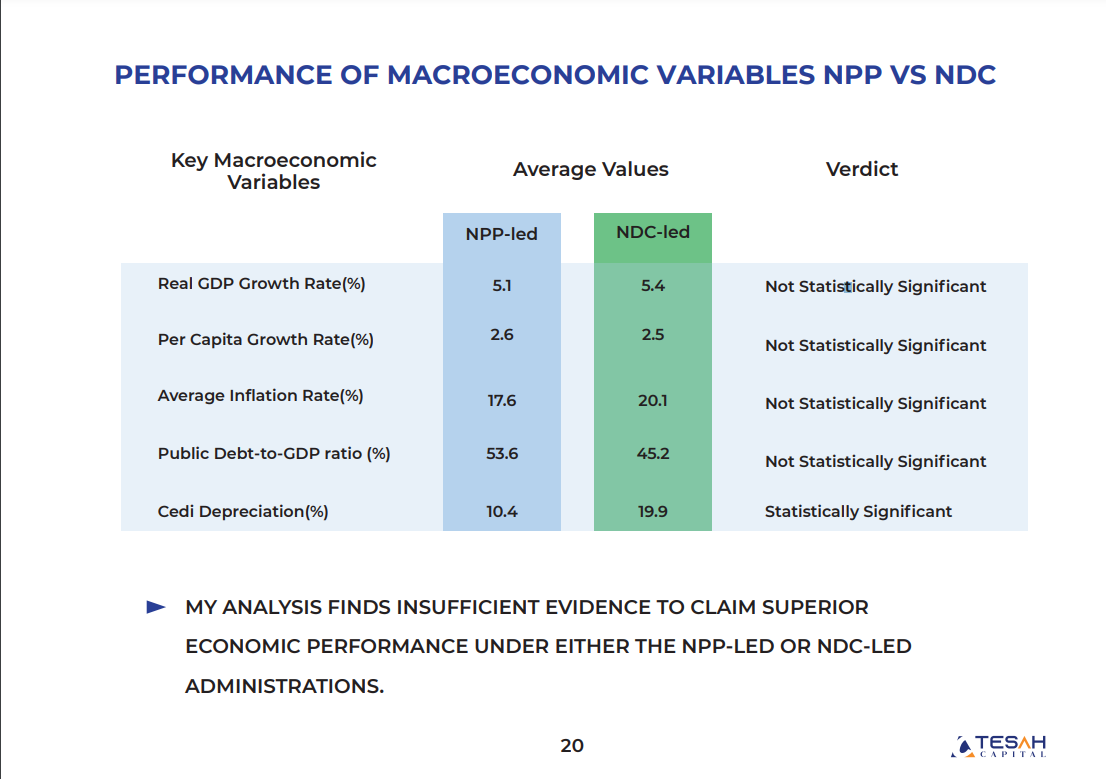
By Bright Philip DONKOR
Dr. Frank Bannor, a Development Economist and Head of Research at the Danquah Institute, has noted that a key issue highlighted in the NPP’s new manifesto is Dr. Bawumia’s commitment to simplifying Ghana’s complex tax regime to stimulate the country’s economic growth.
In an interview on France24 news on the document’s proposed reforms, Dr. Bannor noted that the country’s current tax system is perceived as overly complicated and burdensome for both corporations and individual citizens, a challenge the NPP aims to tackle head-on.
“Ghana’s tax system is not only complicated but also a significant hindrance to economic growth. For instance, it requires businesses to hire specialists just to understand their tax obligations by GRA, which pushes some to evade taxes altogether, leading to a loss in government revenue,” he stated.
As a member of the identifiable group within the manifesto committee, Dr. Bannor revealed that he had held discussions with key stakeholders such as the Ghana Union of Traders Association (GUTA), the Ghana National Chamber of Commerce and Industry, the Ghana Carages Association, and the Pharmaceutical Society of Ghana.
According to him, the feedback from these stakeholders consistently highlighted the cumbersome nature of the tax system, which often places undue pressure on businesses.
Reforming tax architecture
Dr. Bannor explained that the manifesto proposes a total overhaul of Ghana’s tax architecture, including the introduction of a simplified flat-rate tax system.
He drew inspiration from Estonia’s successful implementation of a flat 20% tax rate. He explained that the NPP’s plan seeks to streamline the tax system while ensuring that businesses are incentivized to grow.
“Dr. Bawumia’s vision goes beyond just taxation; it’s about fostering a more business-friendly environment. The goal is to introduce a progressive tax system that allows businesses to thrive before being subjected to heavier taxation,” Dr. Bannor stated.
Job creation and youth empowerment
Dr. Bannor mentioned that the manifesto also places a strong emphasis on job creation, particularly for Ghana’s youth. He highlighted plans to equip one million Ghanaians with IT and software-related skills, preparing them for the opportunities of the fourth industrial revolution.
He stressed that this initiative is designed not only for university graduates but also for individuals with basic education, ensuring that no one is left behind in the digital transformation.
“Ghana has missed out on previous industrial revolutions, but we cannot afford to miss out on the digital age. The vision is to position Ghana as a regional IT hub, much like India has become a global leader in the tech industry,” Dr. Bannor explained.
He indicated that the manifesto also proposes reforms to simplify business registration processes, which are currently seen as a major obstacle for entrepreneurs. Dr. Bannor pointed to Rwanda’s success in creating a digitalized, cashless system for business registration, saying the NPP aims to replicate this model in Ghana. He believes this reform is expected to eliminate bureaucratic hurdles and reduce costs for business owners.
Digitalization and anti-corruption efforts
He indicated that digitalization is another key focus of the NPP’s manifesto, particularly in streamlining government operations and reducing human interaction in transactions. Dr. Bannor emphasized that these reforms aim to create a cashless economy, which would not only improve efficiency but also reduce corruption and bureaucratic delays.
“By digitalizing government services and promoting transparency, we can significantly cut down on the corruption that has plagued many sectors,” Dr. Bannor added. He further emphasised that the NPP’s manifesto explores opportunities for exporting Ghana’s surplus talent, particularly in the healthcare sector.
Dr. Bannor pointed to Kenya’s agreement with Saudi Arabia, where Kenyan healthcare workers are employed abroad, generating revenue for the Kenyan government while alleviating domestic unemployment.
“One striking example of this strategy is modeled on an agreement Kenya signed with the government of Saudi Arabia. Kenya, which produces a surplus of health professionals, found itself unable to fully absorb them into its own system.
Instead of allowing this valuable human resource to go underutilized, the Kenyan government identified Saudi Arabia, a country with high demand for healthcare workers, as an ideal partner.
“Under this agreement, Kenya “exports” its health professionals, particularly nurses, to Saudi Arabia. What’s unique about the deal is that a portion of the wages these professionals earn while working in Saudi Arabia is remitted directly to the Kenyan government.
This is mutually beneficial; Kenya alleviates domestic unemployment while generating revenue, and Saudi Arabia fills critical staffing shortages. Dr. Bawumia’s vision involves similar collaborations, particularly to address Ghana’s own unemployment challenges, especially in sectors with surplus talent,” he noted.
Support SMEs
Dr. Bannor added the manifesto outlines plans to establish a dedicated SME bank to provide financial support to small and medium-sized enterprises. Currently, SMEs contribute approximately 80% of jobs in Ghana but face significant challenges in accessing finance. He noted that the creation of this bank would help level the playing field, giving entrepreneurs the resources they need to grow their businesses.
“Not only will this bank provide loans tailored to SMEs, but it will also level the playing field for aspiring entrepreneurs. This means that whether you work for a multinational organization or you’re an individual with an innovative idea, you’ll have access to the resources you need to start your business.
Over the course of two to three years, your business could grow, allowing you to create jobs for others. This transformative vision is aimed at fostering a thriving SME sector and empowering Ghanaian entrepreneurs,” he stated.
He stressed that Dr. Bawumia advocates a tax credit system for new businesses. “He understands that even after gaining access to finance, new businesses need time to mature. As with nurturing a child, the government should allow these businesses a grace period before expecting them to contribute heavily through taxation,” he added.
“He proposes a three-year tax credit for new enterprises, allowing them to reinvest their profits into expanding their businesses rather than paying taxes during their initial years of operation. This will not only encourage entrepreneurship but also enable businesses to hire more employees, ultimately benefiting the wider economy,” Dr. Bannor indicated.
The post NPP manifesto to simplify tax system, drive economic growth – Dr. Bannor appeared first on The Business & Financial Times.
Read Full Story













Facebook
Twitter
Pinterest
Instagram
Google+
YouTube
LinkedIn
RSS